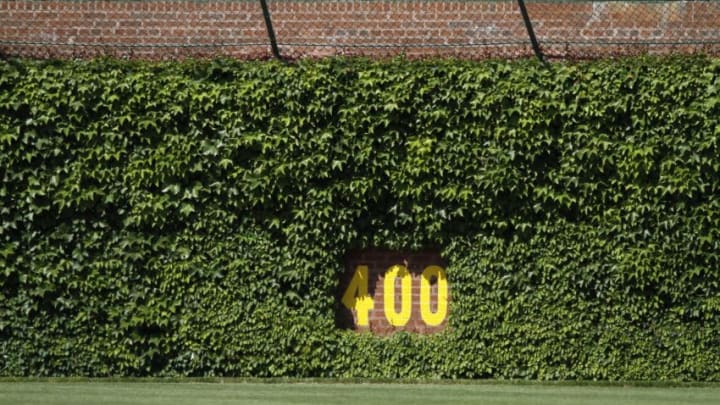
One of the oldest members of our best all-time general managers list, we go back to 20+ years before the turn of the 20th century for #18 on our list.
Chicago White Stockings, 1876-81
William Hulbert had a clear advantage over his fellow club owners entering the National League’s inaugural 1876 season to make him one of the best all-time general managers. As the league’s founder, he was able to lock up the game’s biggest stars before his competition even knew there would be a competition.
That’s how Hulbert signed the cream of the game’s crop in those days — Al Spalding, Ross Barnes, Cal McVey and Deacon White – to Chicago contracts. It was a very Chicago thing to do: First, fix the race and then announce that it was being held.

Hulbert had the good fortune to marry into the grocery business, eventually expanding that into coal. His motives for getting into baseball are unknown, but he was an early stockholder of Chicago’s entry in the 1871 National Association. Convinced he could do a better job of running a league, Hulbert engineered the Association’s destruction in 1875 and manipulated its resurrection as the National League in 1876.
Given his advance knowledge of his revolutionary intentions, it’s not much of a surprise that Hulbert 135 years later remains what he was at the outset of modern big league baseball: one of the top short-term organizers of all time. His average short-term impact, +3.08 games, is still the 10th best in history, 1.56 standard deviations above the norm among the best all-time general managers.
In fact, the surprise may be that the builder of the major leagues’ first powerhouse, the Chicago White Stockings of 1876 through 1886 – was so relatively incompetent at long-term construction. His impacts in that regard, +2.40 per season and +12.0 total, are both well below average.
There are several logical reasons for this failure.
First, Hulbert became league president in 1877, his attention was thus divided between the White Stockings and the survival of the shaky enterprise.
Second, there was no such thing as a reserve clause for most of Hulbert’s tenure, and his stars – having no connection beyond a paycheck to Chicago – tended to leave within a year or two. That was true of White, McVey, Paul Hines and Ross Barnes, as it would later be true of Bob Ferguson, Joe Start and Orator Shafer.
Finally, Hulbert’s death early in 1882 robbed him of any chance to fashion a long-term legacy from the reserve clause, and did so at a time when a new round of Chicago stars –King Kelly, Larry Corcoran, Ned Williamson, George Gore, Silver Flint – would have provided that legacy.
The proof is contained in the record of his successor in the front office, Spalding. The White Stockings won the 1882 pennant by three games with Spalding making only one inconsequential personnel adjustment to the roster Hulbert had left behind. In truth, both the 1885 and 1886 White Stockings’ pennant winners bore Hulbert’s mark more than they did Spalding’s.
Hulbert’s residual ratings provide further evidence: he stands 1.4 standard deviations above the norm for average residual impact and 1.58 standard deviations to the good for total residual impact.
Obviously, it could be argued that as an owner Hulbert should not even be eligible for consideration in a ranking of the best all-time general managers. The counter-argument is that in Hulbert’s time there was no such position as a general manager, and that contractual issues were generally the province of the team owner. In Hulbert’s case, it could also be argued that he received assistance from Spalding. That’s certainly true at a certain point; the question is when. Given that Hulbert was still young at the time of his death, and also that Spalding at the time was committed to the development of his own young sporting goods business, it seems reasonable to view Hulbert as the decision-maker.
Not surprisingly, given his advanced knowledge of what would happen, Hulbert’s 1876 performance was the best in baseball. He also led GMs in short-term impact in 1880, when the White Stockings won their second pennant. At +4.55 games per season, he was and remains the most successful GM in history measured by the average short-term impact of his free agents.
But what Hulbert brought in he could also let escape; his average rank in free agent losses is 175th of 179, and he ranks dead last in the average short-term impact of his free agent losses. In short, Hulbert knew how to get good people, but he did not know how to keep them.
William Hulbert
In the first six categories, values reflect the standard deviation of the GM’s performance above or below the historical mean for that category. Category 7 awards or deducts points for seasons in which the GM’s short-term impact exceeded the margin by which his team either reached post-season or failed to do so. Category 8 represents post-season appearances; in categories 7 and 8 indicated points are based on numbers of teams and post-season berths.
1 Short-term average: +1.56
2 Short-term total: +0.88
3 Long-term average: -0.26
4 Long-term total: -0.56
5 Residual average: +1.40
6 Residual total: +1.58
7 GM’s post-season shares:
- 1876: Hulbert improved the White Stockings by +15.5 games; there was no post-season that year, but they won the pennant by six games. Key moves: Signed Al Spalding, +4.3; signed Ross Barnes, +4.2; signed Cap Anson, +2.8; signed Deacon White, +1.9.
Category 7 total: +1.00
8 Credit for post-season appearances (1876, +1.00; 1880, +1.00; 1881, +1.00): +3.00
Grand total: +8.60.
That’s #18 on the best all-time general managers. Do we have Hulbert too high? too low? Comment below!
